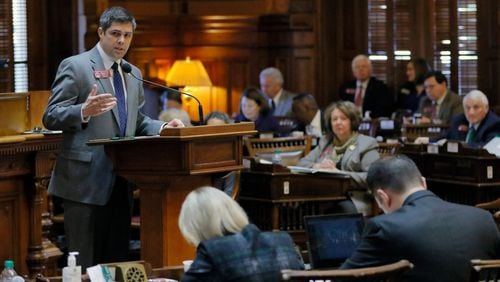The Georgia House and Senate on Thursday backed a measure to cap how much home assessments can go up each year at the rate of inflation in an effort to tamp down property tax increases.
The Senate voted 52-0 and House 164-2 for House Bill 581, which also would allow all local governments to use revenue from a 1-cent sales tax hike to lower property taxes. Some local governments already have similar taxes.
Lawmakers said if implemented throughout Georgia, the sales tax could replace property taxes that fund more than 60% of the state’s cities. Most property tax money goes to pay for schools.
In addition, the Senate gave final approval to an increase in the state homestead exemption from $2,000 to $4,000 that was pushed by House Speaker Jon Burns. The exemption would lower the taxable value of a homeowner’s property.
The Senate twice during the session passed a 3% cap on assessments, but its sponsor, Senate Finance Chairman Chuck Hufstetler, R-Rome, agreed Thursday to the House proposal for using the rate of inflation as the cap.
Both chambers pushed a host of bills during the session to limit assessments, which have skyrocketed in parts of metro Atlanta.
A homeowner’s property tax bill is mostly made up of two elements: the tax rate and the assessed value of the property. School districts, cities and counties have been able to count on a boost in revenue without raising tax rates because the assessed values of homes and businesses in some areas have risen sharply.
Senators say about 75% of what homeowners pay goes to schools, and local governments have been taking in double-digit increases in revenue without raising their tax rates.
The caps on unimproved property assessment increases could mean local governments and school districts would have to raise tax rates, but some lawmakers say at least that would make the process more transparent to homeowners, many of whom don’t understand the values placed on their homes.
Under HB 581, local governments could vote to opt out of the cap.
Also Thursday, the Senate gave final approval to House Bill 1021, which would increase the standard income tax exemption on dependents from $3,000 to $4,000. State officials have estimated that will save Georgians about $150 million on their income taxes next year.
About the Author








